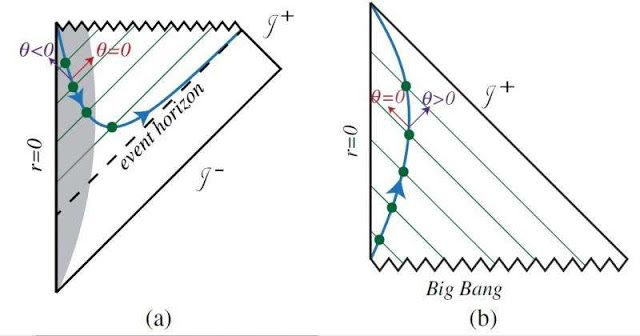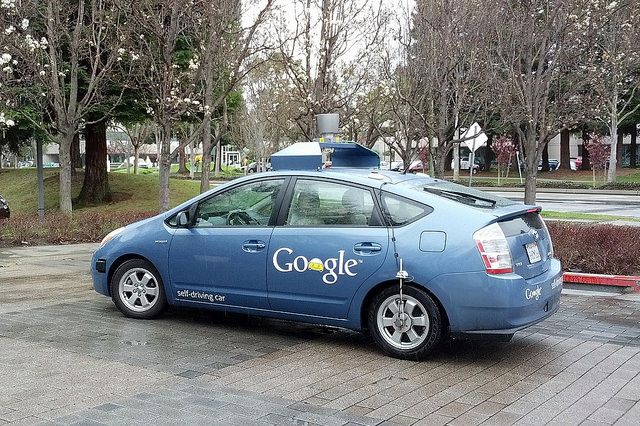In 2025, in accordance with Moore’s Law, we’ll see an acceleration in the rate of change as we move closer to a world of true abundance. Here are eight areas where we’ll see extraordinary transformation in the next decade:


In 2025, in accordance with Moore’s Law, we’ll see an acceleration in the rate of change as we move closer to a world of true abundance. Here are eight areas where we’ll see extraordinary transformation in the next decade:

Investments in Longevity Could Really Pay Off
With a ‘silver tsunami’ ahead, tackling aging makes all kinds of sense — and could reap rich rewards.
AOL running an energetic 2-min video on transhumanism and longevity on their morning show:
Zoltan Istvan of the Transhumanist Party is running for President on one platform: longevity.

Your DNA contains a huge amount of information, and it’s getting cheaper and easier to sequence it every day. The problem now is not the sequencing, but what you can actually learn from the information — if you can at all. We’re pretty good at reading off the code nowadays, but the vast majority of it is still a mystery. While there are many companies that will sequence your DNA for a relatively cheap fee, there’s no unified platform directing you to companies who can actually make sense of the code for you; after all there’s not much use having information if you have no idea what it means. Starting with a $100 million investment and partners including Illumina (a world leader in sequencing), new company Helix aims to change this by building a sort of genome ‘App store’ — putting you in touch with your DNA.
Helix wants to act like a hub, connecting you with the right companies and enabling you to find out information you want on your very own genome. As sequencing expands, buoyed by the precision medicine drive, we’re learning more and more about our DNA. This platform hopes to bring all these developments together so that discoveries can trickle through to individuals at home trying to decipher their own genomes.
”Genomics is reaching an inflection point in cost, volumes, and knowledge, creating a significant opportunity to unlock information that is currently not widely accessible to individuals”

Black holes are known to have many strange properties, such as that they allow nothing—not even light—to escape after falling in. A lesser known but equally bizarre property is that black holes appear to “know” what happens in the future in order to form in the first place. However, this strange property arises from the way in which black holes are defined, which has motivated some physicists to explore alternative definitions.
They reported a new area law in general relativity that is based on an interpretation of black holes as curved geometric objects called “holographic screens.”
“The so-called teleology of the black hole event horizon is an artifact of the way in which physicists define an event horizon: the event horizon is defined with respect to infinite future elapsed time, so by definition it ‘knows’ about the entire fate of the universe,” Engelhardt told Phys.org. “In general relativity, the black hole event horizon cannot be observed by any physical observer in finite time, and there isn’t a sense in which the black hole as an entity knows about future infinity. It is simply a convenient way of describing black holes.”
The first VASIMR experiment was conducted at MIT in 1983 on their magnetic mirror device plasma device, and in 1998 ASPL created the first VASIMR rocket, the VX-10. By 2005 the ASPL had created the VX-50, which was capable of up to 50kW of plasma discharge. So, what’s so significant about this design?
The controversial group behind several bitcoin ‘stress tests’ has confirmed it will push ahead with its biggest experiment to date.
Speaking to CoinDesk, CoinWallet COO James Wilson said the test – which could reportedly cause a 30-day backlog of transactions – would be executed at 10am Thursday (GMT) next week.
The mysterious group, which sees its work as a drastic but necessary demonstration of Bitcoin XT’s need, has been criticised by some users for “bullying” a live network worth several billion dollars.

With the standard of a gamified social media, two young adults meet for a date with the expectation of personal fulfillment.
Alex Stanton’s Thesis Project for Full Sail University’s Digital Cinematography Bachelor’s of Science program.
Directed by: Alex Stanton vimeo.com/alexstanton, Brent Howard.
Story by: Pride. St. Clair.
Cinematography by: Josh Russell vimeo.com/joshrussell
Original Music Composed by: Josh Wilson.
Title Design: Chris Koelsch vimeo.com/thisnthat
Starring: Justin Stanton.
Lissy Smith vimeo.com/user9221474
Dylan Stretchbery vimeo.com/user27301393
Daniel Lee Robertson III
Additional Music:
“CRUZIN” by Benedek.
freemusicarchive.org/music/Benedek/Bonus_Beat_Blast_2011/10_benedek-cruzin
“Waves” by Happy Elf.
wmrecordings.com/freedownloads.htm
Reddit AMAs are such a great feature. They’re one of the (admittedly few) redeeming features that keep the community interesting enough to follow, despite all the crap that the site otherwise plays host to.
In this Ask Me Anything, a series in which a notable person stays with a Reddit topic to answer Redditors’ questions, Matt Thomson from the UC San Francisco explains how he and the team he works with are able to use coloured light to get stem cells to develop in such a way as to form otherwise rare neurons, and similar cells that have until recently been beyond cellular biologists’ grasp. Here’s a video to get you started:

A few lines in a seemingly routine RAND Corp. report on the future of technology and law enforcement last week raised a provocative question: Should police have the power to take control of a self-driving car?
Human drivers are required to pull over when a police officer gestures for them to do so. It’s reasonable to expect that self-driving cars would do the same. To look at it another way: Self-driving cars are programmed to stop at red lights and stop signs. Surely they should also be programmed to stop when a police officer flags them down. It is, after all, the law.
It’s clear, then, that police officers should have some power over the movements of self-driving cars. What’s less clear is where to draw the line. If a police officer can command a self-driving car to pull over for his own safety and that of others on the road, can he do the same if he suspects the passenger of a crime? And what if the passenger doesn’t want the car to stop—can she override the command, or does the police officer have ultimate control? – Slate, Aug. 24, 2015
Our view of civil rights has to evolve as technology changes our lives. More often than not, the changes are for the worse. Fifty years ago, could the police enter your home without a warrant and review your family photos for criminal evidence? No, and they still can’t today – though, of course, we know they do. However, they can order Facebook to give them access to photos you shared only with your selected friends.